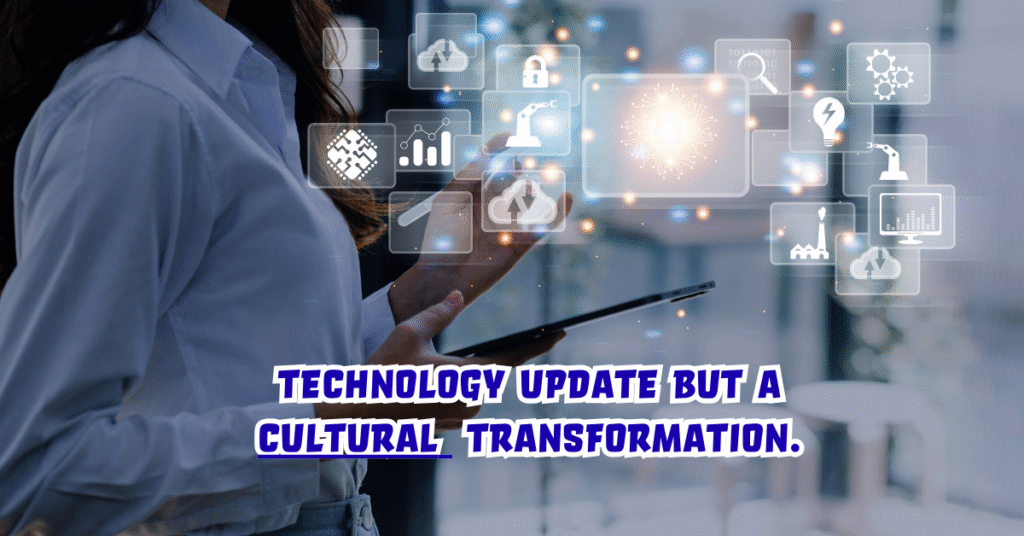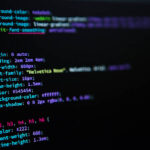Artificial Intelligence (AI) has transitioned from a futuristic concept to a practical necessity, transforming industries across the globe. Among the many areas undergoing a profound evolution, Enterprise Resource Planning (ERP) stands at the forefront. The introduction of AI-driven ERP systems is not just redefining business processes but also laying the foundation for the future of organizations like NUSAKER, a growing hub of innovation and digital transformation. The role of ERP systems has always been to streamline processes, integrate business functions, and ensure better decision-making. Yet, with AI at its core, the shift is no longer about management—it is about foresight, prediction, and adaptation in real time.
For NUSAKER, the idea of AI-driven ERP is not merely a technology update but a cultural transformation. Companies within its ecosystem must navigate a new paradigm where traditional reporting gives way to predictive insights, where human decision-making is augmented by machine learning, and where efficiency is driven by data rather than manual oversight. This article explores how AI-powered ERP systems are shaping the future of NUSAKER, with insights into the underlying technologies, their practical applications, challenges, and the strategies businesses must adopt to stay competitive in this rapidly changing environment.
Understanding ERP in the Context of NUSAKER
Enterprise Resource Planning (ERP) has historically been the backbone of organizations, allowing companies to unify finance, supply chain, human resources, and customer relationship management under one system. For NUSAKER’s diverse industries—spanning technology, manufacturing, logistics, and services—ERP provides a critical infrastructure that keeps operations smooth and data accessible. However, the traditional ERP model often struggled with rigidity, delayed reporting, and costly implementations.
The AI-driven approach resolves these bottlenecks by embedding machine learning, natural language processing, and advanced analytics into ERP platforms. This not only automates repetitive tasks but also empowers companies to anticipate market changes, customer needs, and resource demands before they arise. For NUSAKER, this represents a leap from reactive management to proactive innovation, positioning the region as a testbed for future-ready enterprise solutions.
How AI Transforms ERP Systems
AI-driven ERP systems incorporate a range of intelligent features, including predictive analytics, anomaly detection, and conversational AI. These systems continuously learn from organizational data, refining outputs and offering more accurate recommendations over time. Unlike legacy ERP systems, which often functioned as static repositories, AI-powered ERP operates dynamically, evolving alongside business changes.
Key transformations include:
- Predictive Forecasting: Anticipating demand surges or financial risks.
- Process Automation: Eliminating repetitive tasks like invoice processing.
- Natural Language Queries: Allowing managers to ask ERP questions in plain language.
- Intelligent Workflows: Streamlining approvals and resource allocation based on AI insights.
For NUSAKER-based firms, these capabilities mean faster decision cycles, reduced operational costs, and a competitive edge in industries increasingly defined by speed and agility.
Table 1: Traditional ERP vs AI-Driven ERP in NUSAKER
| Feature | Traditional ERP | AI-Driven ERP at NUSAKER |
|---|---|---|
| Data Processing | Batch-based, delayed | Real-time, predictive and adaptive |
| Decision Support | Manual reports | AI-assisted, proactive insights |
| Cost Efficiency | High setup, maintenance costs | Reduced costs through automation |
| User Experience | Technical and rigid | Conversational, intuitive interfaces |
| Adaptability | Limited customization | Adaptive learning and flexible scaling |
The Strategic Value of AI in ERP for NUSAKER
The strategic importance of AI-driven ERP systems in NUSAKER cannot be overstated. As industries face volatility in global supply chains, shifting customer preferences, and the rise of digital-first economies, ERP systems embedded with AI provide a stabilizing yet forward-looking advantage. They enable businesses to not only monitor performance but also to simulate scenarios, optimize workforce allocation, and align financial planning with real-world changes.
This strategic value resonates deeply with NUSAKER’s ambition to become a global digital hub. By embedding AI into ERP, businesses gain an integrated nervous system capable of sensing, analyzing, and responding—an ability that is indispensable in navigating the unpredictability of global markets.
AI-Driven ERP and Workforce Transformation
One of the most debated aspects of AI integration is its impact on the workforce. In NUSAKER, where businesses range from start-ups to established enterprises, the transition brings opportunities as well as challenges. While automation may reduce the demand for repetitive clerical roles, it simultaneously increases the need for skilled professionals in AI training, ERP customization, and data governance.
Employees benefit from reduced manual workload and enhanced decision-making support, allowing them to focus on strategy and creativity. For organizations, this transformation demands investment in reskilling and workforce development programs. Companies that successfully manage this transition can foster innovation while maintaining employee morale.
Table 2: Workforce Impact of AI-Driven ERP Systems in NUSAKER
| Workforce Element | Pre-AI ERP Era | AI-Driven ERP Future in NUSAKER |
|---|---|---|
| Routine Tasks | Manual entry, data reconciliation | Automated with minimal human oversight |
| Decision-Making Roles | Based on historical data | Augmented by predictive AI insights |
| Employee Training Needs | ERP software operation | AI, machine learning, and data literacy |
| Job Creation | Limited in ERP management | High in AI development, customization |
The Future of NUSAKER: AI and Beyond
For NUSAKER, the AI-driven ERP journey is just the beginning. Emerging technologies such as blockchain integration, quantum computing, and hyper-automation will further enhance the resilience and intelligence of ERP platforms. The vision for the future is not simply about faster systems but about creating ecosystems where ERP becomes a living, evolving entity that mirrors and guides organizational growth.
Challenges in Adopting AI-Driven ERP Systems
Despite its promise, adoption is not without hurdles. For NUSAKER companies, common challenges include high initial investments, data privacy concerns, and the complexity of integrating AI with existing legacy systems. Additionally, cultural resistance to AI-driven decision-making poses an organizational challenge, particularly in firms where hierarchical management remains dominant. Addressing these challenges requires leadership commitment, phased implementation strategies, and clear communication of long-term benefits.
FAQs on AI-Driven ERP Systems and NUSAKER
Q1: What makes AI-driven ERP systems different from traditional ERP?
AI-driven ERP systems go beyond data storage and reporting, using predictive analytics and machine learning to anticipate business needs.
Q2: How will AI-driven ERP impact jobs in NUSAKER?
While routine clerical roles may decline, new opportunities will emerge in AI customization, training, and data management.
Q3: Are AI-driven ERP systems suitable for small businesses in NUSAKER?
Yes, cloud-based AI ERP solutions are scalable, making them accessible and affordable for small and medium enterprises.
Q4: What industries in NUSAKER will benefit the most from AI-driven ERP?
Industries like logistics, manufacturing, healthcare, and retail stand to gain the most due to their reliance on efficiency and forecasting.
Q5: What are the risks of implementing AI-driven ERP systems?
Risks include high costs, integration issues with legacy systems, and potential data security vulnerabilities if not managed properly.
Conclusion
The integration of AI into ERP systems represents more than a technological upgrade—it marks the dawn of a new enterprise era for NUSAKER. By shifting from reactive management to predictive intelligence, AI-driven ERP platforms provide businesses with tools to thrive in complex and uncertain environments. For NUSAKER, this means not only enhanced efficiency but also a stronger competitive position on the global stage. The journey, however, demands thoughtful implementation, investment in workforce reskilling, and continuous adaptation to emerging technologies. As one industry leader noted, “AI in ERP is not about replacing humans, but about equipping them with foresight.”
The future of NUSAKER, shaped by AI-driven ERP systems, is a future where businesses are not just surviving but anticipating, innovating, and leading.







